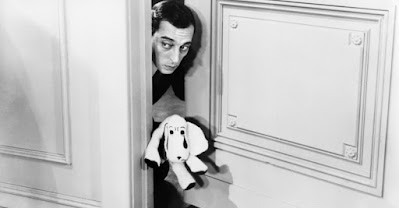Garry McKee and film-makers Kelly and Tammy Rundle started MOVIE STAR in 2007, based around McKee's 1991 interview with Seberg's sister Mary Ann. Their 2014 film has now been revised for a DVD release, a definite labour of love.

It easily eclipses the biopic SEBERG which made up it's own lies to show how Jean was ruined by lies.




Shelf or charity shop? A definite keeper - well I am in the end credits for helping support it. McKee and the Rundles' tenacity in getting MOVIE STAR made and distributed is to be applauded as the result is visually appealing and stimulating in it's recounting the rollercoaster short life of one of my favourite actresses. Owing to Jean's instant fame in 1957, the film-makers can tell Jean's story through a wide range of film clips, tv interviews, photographs, and newspaper & magazine cuttings. They also have the good fortune to have McKee's interviews with Mary Ann Seberg (interviewed only 12 years after Jean's death, Mary Ann's emotions are all too understandable), Marshaltown contemporaries and others including BONJOUR TRISTESSE co-star Mylene Demongeot, Jean's first husband Francois Moreuil and a remarkably frank contribution from former Black Panther leader Elaine Brown. The constant presence of Jean's Iowa background seems odd at first but it slowly evolves into another fascinating story of how small-town Marshaltown became ambivalent towards her, her European lifestyle and her lifelong activism for disadvantaged people while Jean, in local press interviews when returning to see her family, always talked up her career prospects, even in the late 1970s when her films became more obscure. If you wish to support the last fundraising appeal to complete the DVD release, please click here - MOVIE STAR deserves to be seen.












































